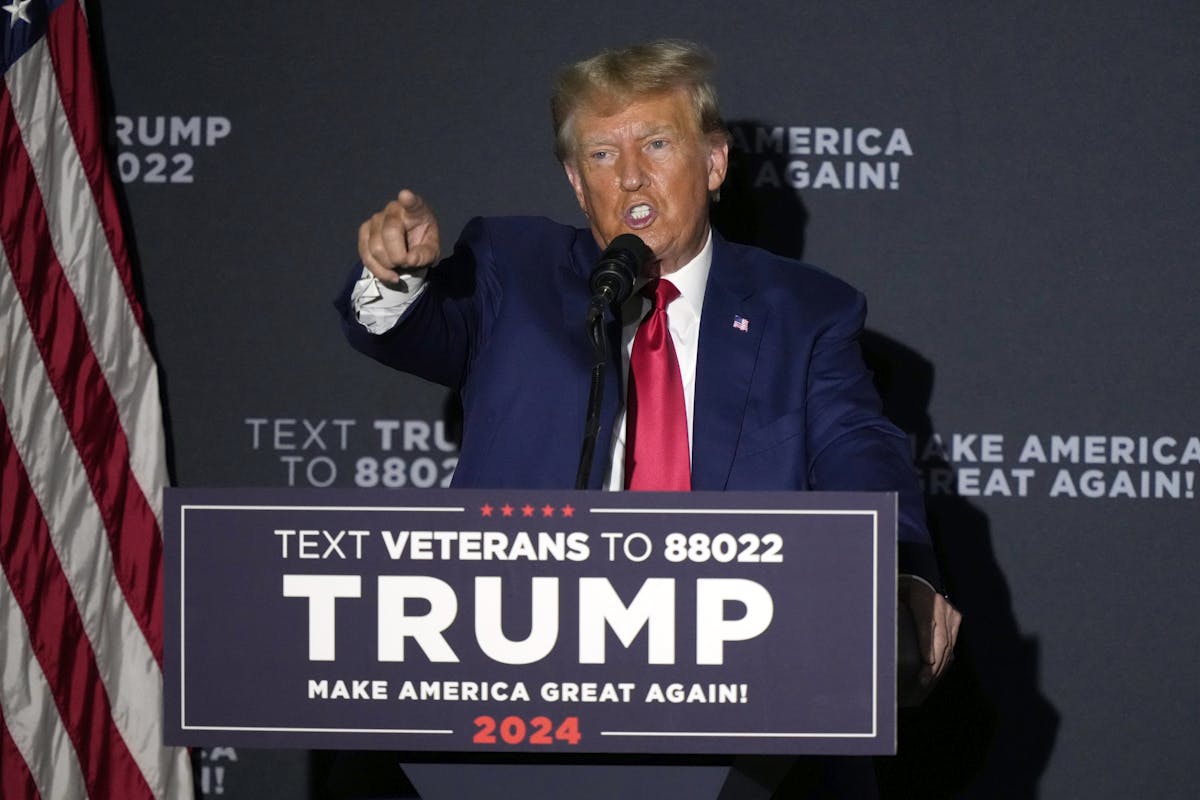Judge in Mar-a-Lago Case Rebukes Jack Smith Over an Issue That Could Upend Entire Prosecution
The judge wants to know, for starters, why a grand jury at Washington, D.C., appears to be collaborating on charges in her district in Florida.

A request that appears to double as a rebuke from Judge Aileen Cannon regarding Special Counsel Jack Smith’s use of grand juries could threaten both his engines for generating indictments and her handling of the Mar-a-Lago documents case against President Trump.
For the relatively green jurist — she was nominated to the federal bench in 2020 by Mr. Trump, and recently bobbled a sex-abuse case — the demand for briefing on the appropriateness of Mr. Smith’s approach could presage a broader clash over the criminal case against the 45th president, which she could throw into disarray. The riders of the 11th Circuit had best be on standby.
In respect of Mr. Smith’s request that a pair of documents be shrouded in “grand jury secrecy,” Judge Cannon offered a sharp rebuff, striking them from the docket and calling the prosecutor’s argument “conclusory.” She reckons that he “plainly” fails to “satisfy the burden of establishing a sufficient legal or factual basis to warrant sealing the motion and supplement.”
Judge Cannon’s skepticism, moreover, appeared to question Mr. Smith’s pre-trial charging architecture. She asks both sides to weigh in on the “legal propriety of using an out-of-district grand jury proceeding to continue to investigate and/or to seek post-indictment hearings.”
The request underscores that the Mar-a-Lago documents case is not limited to southern Florida, where charges have been filed. It sprawls. The indictment of Mr. Trump and an aide, Walt Nauta, and a superseding one of a maintenance worker, Carlos De Oliveira, reference documents being taken from the White House and stored at Bedminster, New Jersey, both outside Judge Cannon’s jurisdiction.
Now, though, that apparatus could be in danger. Judge Cannon asks Messrs. Trump and Nauta, together or separately, to weigh in on what she calls “the grand jury issue.” Mr. Smith’s take is due five days later. While Judge Cannon did not mention the location of the other grand jury, ABC reports that it is based at the District of Columbia.
To avoid that body being shut down, the government will likely point to a provision tucked into one of the charges handed up against Mr. Trump, 18 United States Code 1512 (i). That allows for a prosecution to be “brought in the district in which the official proceeding … was intended to be affected or in the district in which the conduct constituting the alleged offense occurred.”
The Constitution’s Fifth Amendment ordains that “No person shall be held to answer for a capital, or otherwise infamous crime, unless on a presentment or indictment of a Grand Jury.” The Supreme Court has held that this means that all felony crimes require charges from a grand jury. Grand juries are intended to hand up charges, not furnish evidence for trial.
The Legal Information Institute notes, “The grand jury is generally free to pursue its investigations unhindered by external influence or supervision.” The high court calls a grand jury an “accusatory body that sits to assess whether there is adequate basis for bringing a criminal charge.” It is meant to “hear only the prosecutor’s side,” and thus considers no exculpatory evidence.
In 1985 a New York judge, Sol Wachtler, quipped that “a grand jury would indict a ham sandwich.” The journalist and author Tom Wolfe included the phrase in his 1987 “Bonfire of the Vanities,” explaining that “mainly you used the grand jury to indict people.” Judge Wachtler was himself indicted for extortion, and was sentenced to 15 months in federal prison.
In a filing to Judge Cannon, Mr. Smith notes, “The grand jury in this district and a grand jury in the District of Columbia continued to investigate further obstructive activity, and a superseding indictment was returned on July 27, 2023” — the one that charged Mr. De Oliveira, and piled on additional charges for the former president and his valet.
Mr. Smith’s District of Columbia grand jury has handed up no charges in the Mar-a-Lago case, a quiescence that could inform Judge Cannon’s desire for an explanation for why it is still in session. Its Florida counterpart has charged more than 40 offenses. Mr. Smith, though, could see keeping that jury active as a way to preserve the possibility of charges, against Mr. Trump or others, for removal of confidential material from the White House.
One clue could lie in the Sunshine State indictment, which lists the “Date of Offense” as “January 20, 2021.” Mr. Trump left the White House at about 8 a.m. that day, hours before President Biden was sworn in. If Mr. Smith wants to charge for what happened before Mr. Trump touched down at Palm Beach, he would need the District of Columbia grand jury to do so.
Some of that grand jury’s work, though, appears likely to have informed the case that now lives in Judge Cannon’s district. Should she move to cut off that pipeline — or even ascertain that the charges have been infected by the arrangement — Mr. Smith would likely appeal to the 11th Circuit.
Such a ruling could also precipitate an effort on the part of prosecutors to remove Judge Cannon from the case. That decision will ultimately rest with the appellate riders, who have overruled and rebuked Judge Cannon before.

